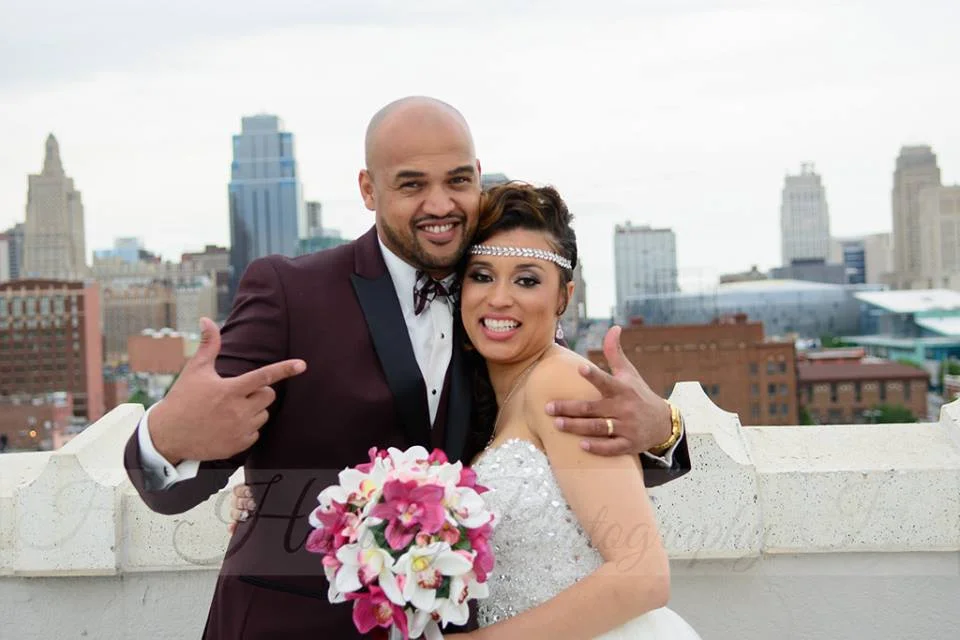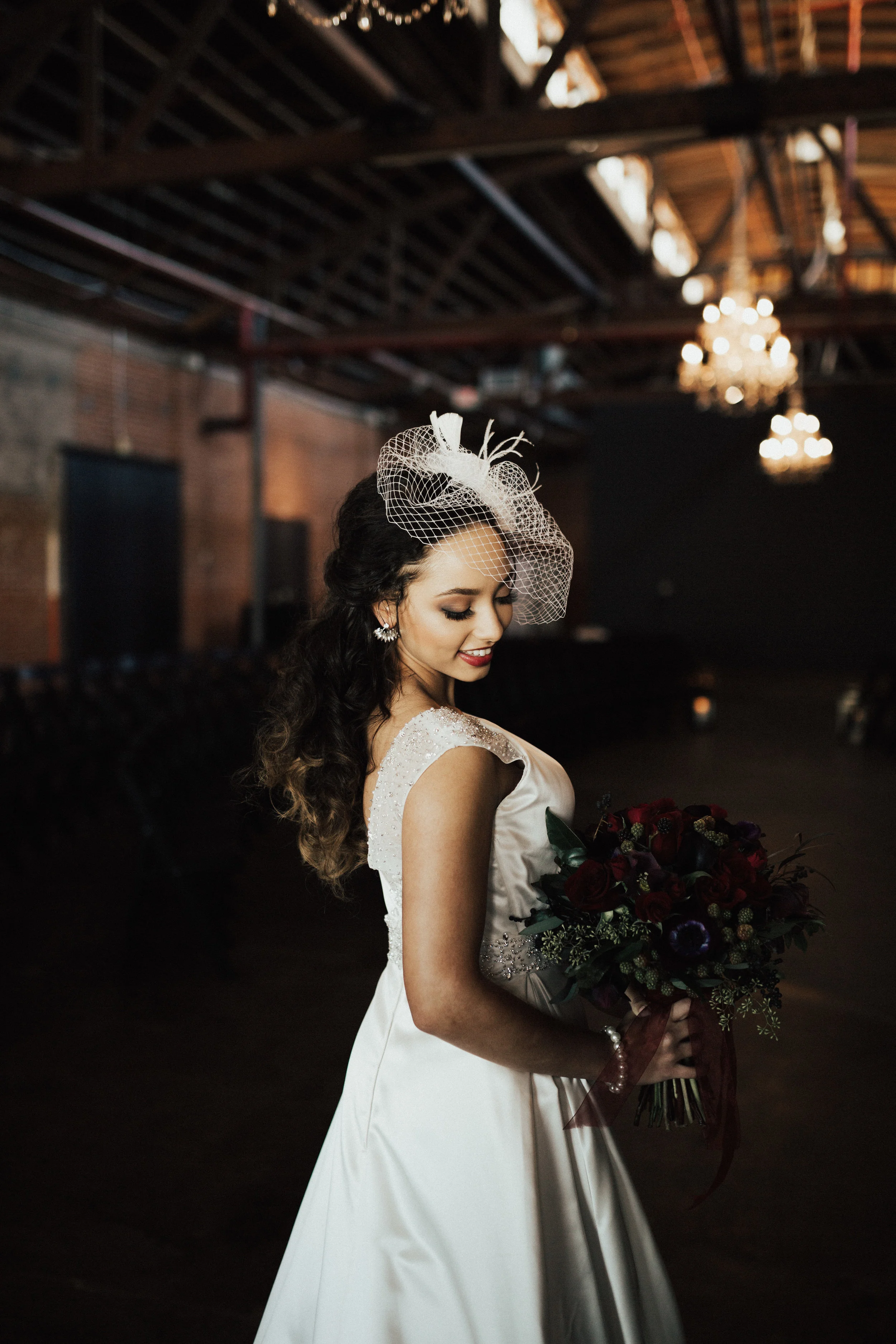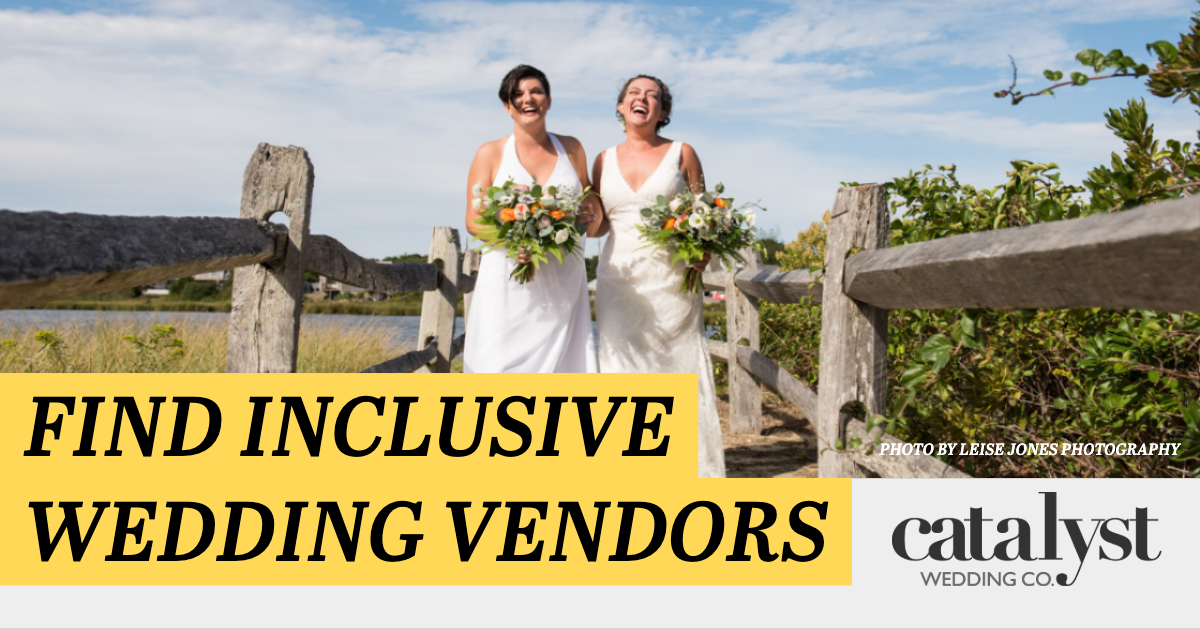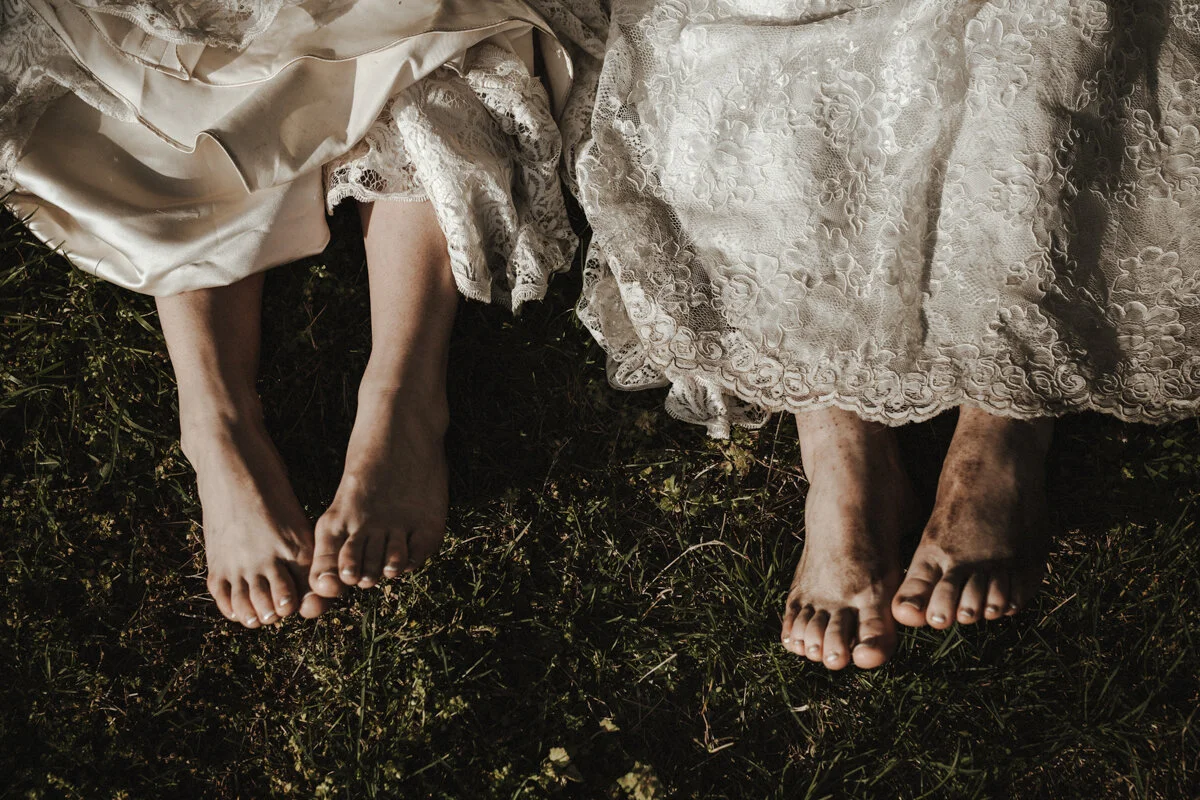Woke Wednesday // Meet Erika Swift
/Photo by Maite Photography
We spoke with Erika Swift, the owner of J&E Designs and The Bridal Loft in Phoenix, Arizona, about her experience growing up in a predominantly white community and finding her voice in the wedding industry to advocate for couples of color.
Liz: Can you tell us a bit about your background? What was growing up like for you?
Erika: Growing up was weird. (laughs) I was raised in an all white area, but I didn't know I wasn't white until I got called the N-word, and someone told me my biological dad was black. We weren't poor, but we weren't comfortable either. My white stepdad took decent care of us, but after I found out I was black, it was an eye-opener. I wanted to know who my dad was, and I was more aware of the way my mom treated me versus my mixed-race siblings. Once I realized that I was black, it was really different—from the way kids treated me, to words and phrases they used, etc. It was like a whole world was laid at my feet.
Liz: Can you tell us a little about how kids treated you that made you realize what this "world" meant—being black in a predominantly white area?
Erika: I had one good friend, Sabrina, who was black and was my little guide. We were teased for our skin color, our hair, and our clothes. She stood up for herself faster and sooner than I did. She was very in tune with who she was, and I admired her for that. Her parents were black and gave her that foundation. She had lovely long hair, straight and wonderful. Mine was still "nappy." She understood her position in life and accepted it, but wasn't going to take anyone's BS, and she helped me when I was being bullied for the way I spoke or how I would carry myself. She stood in her queendom, and I was still figuring out why I wasn't even a princess. Being called the N-word made me see that I am never and was never going to be white. Kids are mean and cruel, and white kids know the difference between black and white faster, in my opinion. You could see that there is a discriminatory line built early on, even when adults don't mean to build it. As a black kid, you are taught, very subtly, to work harder, to do more, and to always put your best foot forward, while your white peers don't do that.
Photo by Holliday Entertainment & Photography
Liz: Thank you for disclosing those details. What was your transition into adulthood like for you?
Erika: We moved to Kansas City when I was 12, going onto 13, and that is such a turning time for a young person. I went from being in an all-white area to an all-black area. I didn't have a buffer anymore; my best friend was in a different state, and I was in another one. I went from finally feeling okay to feeling lost. I got teased worse than before. I was a little bit more confident, but high school was so bad. I thought about suicide a lot, and it wasn't until I was a sophomore in school and started hanging with the uncool kids that I become more Erika. I was finally happy just being myself: awkward, tall, black. When I realized that I was okay with me being me, I started reading more into ways to take care of my hair, my skin, my inner joy of being black. As a senior in high school, I had friends (still white friends and a few black), and I was more aware of black people or the lack thereof in magazines. There were things I wanted to do, but then I would see there were no black people, so I wasn't sure if I could. Its hard.
Liz: That sounds really hard. Do you feel like your awakening racial justice consciousness sort of... saved you, in a way?
Erika: As I got older, I just wanted to have nice hair instead of trying to deal with it. I wanted to date white men because I liked them, not because they wanted a notch in their belt. I wanted to date black men, but I only knew of one type. I wanted to enjoy being black, but growing up surrounded by white people, I wasn't sure how to act or what to say at times. I didn't know my history, and as I learned more and more, I was just trying to fit into this world instead of stand out.
Liz: Survival.
Photo by Carrie Hilgert
Erika: Yes. Observing how to act and constantly questioning if I am doing it right. (laughs) My awareness of social justice issues didn't really show up until I started working. The "Beckys" of the world got jobs I knew I should have gotten or I got treated differently in the office full of white women, being the only black girl. I realized that I am different and embraced it. I didn't (and sort of still don't) know how to awaken people. I could see that I was different and finally embraced it. You could see people being treated differently, and even when I was working harder and harder, I knew it wasn't great, but it made me happy
Liz: It made you happy to get by?
Erika: For a little bit. I was thinking nothing would change. Even if I shouted about how things were, people would just be thinking, that's life. It's like that Katy Perry video "Chained to the Rhythm." When you break it down, you can see the crazy things going on in the world, but nothing is changing to fix it. I felt like that a lot. It changed when I got pregnant. I was really woke then.
Liz: It seems like parents are often willing to fight for justice in the name of their children in ways they weren't always willing to fight for themselves.
Erika: Yes! You hear parents say, "If it was just me I wouldn't care, but now that I have kids..."
Photo by Holliday Entertainment & Photography
Liz: So how did you find yourself in the wedding industry?
Erika: In the wedding industry, it was easier to find myself. I saw the craziness in the world when my kids were born. From my daughter not seeing anyone like her, to specifically trying to find a black baby doll, to my son only seeing white boys in magazines...it was everywhere: at the eye doctor, the pediatrician, grocery stores. (laughs) You could see what's wrong then because you want your children to NOT grow up in the world that doesn't see them.
In the wedding industry, I ALWAYS knew black women and men were underrepresented in ads, magazines, online listings, publications, blogs, etc. I always, always knew I wanted to do more with black people, women of color, black men, Indians, Asians, people other than blondes with blue eyes or maybe a brunette.
Finding myself was easier, but still a struggle. When I first started, I did what everyone did. All my marketing and advertising screamed for the white girl, all my copy was written for a white woman: "Long flowing hair, tresses kissed by sunlight making them golden in the sunset" is literally what I wrote on one website. (laughs) I was a cookie cutter wedding planner.
It wasn't until a few years into my business that I met Erika P with Posh & Prim. She is a strong black woman who booked a lot of black couples. I admired her, and I knew it was time to step up and not be afraid. I changed my website, started working with more black wedding professionals, and then really pushed it out there that I wanted to do more black and women of color styled shoots.
Photo by KSL Wedding and Molly McPhoto
Liz: Awesome. And how has the reception been?
Erika: I called out people who didn't use "ethnic" people and made it clear that there was a lack of representation in Kansas City...which is black filled. But the weddings there weren't black; they were white. I noticed a drop in clients, but I was happier because I felt like I was bringing color to the industry since I was gaining more black clients.
Then I noticed that I saw people going to Wedding MBA, and that's the year I noticed conventions and conferences didn't get black speakers. I complained about it but didn't know who or where to complain to.
And here we are now. (laughs) I have an outlet now because of the women I've met. They encouraged me to do and be more. My life and business do a lot more with black couples and women/men of color, and I am totally loving this. I know I need to speak out more about conferences because I don't want someone to say there isn't a conference I can attend because they don't cater to the black industry people.
Liz: Yes, so it sounds like you've really been able to integrate being "woke" to issues of racial justice into your own creative and entrepreneurial endeavors. Do you have any advice for people who share your convictions but haven't yet made radical moves to make a change in the industry?
Erika: Find someone who is outspoken about it. Find someone who is aware and woke and is loud about it. (laughs) I may have been trying to change my own corner of the industry, but I was changing my corner very quietly. Find someone or a group who wants to be more and do more. Once you are in that group or around that person, you will start to be louder or at least find yourself being more involved. And if you can't find someone, start a group or start a project. Yes, you will get push-back, yes you will get vendors who won't work with you, and they won't say that is the reason, but it is.
Just start. Be loud. Be woke with your wedding industry peeps. If your bestie is a photographer, ask them to do a shoot with ALL black people, especially if their Instagram is a #seaofwhite. This can help you and them. Call out publications, email editors, be consistent.
Photo by KSL Wedding and Molly McPhoto
Liz: That's amazing advice. Thank you so much, Erika. Is there anything else you want to share or add?
Erika: I would say my biggest self discovery came from my kids. I LOVE that my daughter loves her skin. I love that she thinks brown is the most gorgeous color. I would say to people, truly find you (even as an adult), and then embrace it, and don't be afraid. It's a scary ride right now, but it's so worth it. I stand for so much more now. I love my skin and that I can change things, even little by little. Be different, be you, be courageous.
Liz: Amen to all of that. I can feel all of your passion, and it's really moving. Thank you for the work you are doing.



























